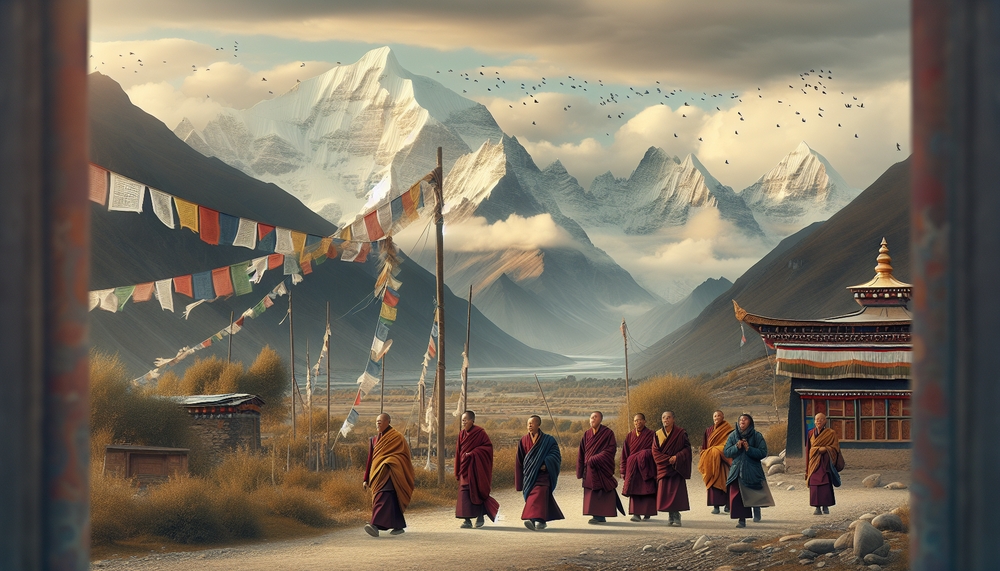The Dalai Lama's Succession: A Global Tipping Point
Published
- 3 min read

Introduction: The High-Stakes Legacy
The Dalai Lama’s succession is not simply a matter of religious continuity; it carries a significant geopolitical weight. The Dalai Lama has long symbolized the Tibetan struggle for autonomy and religious freedom, making his succession a point of international interest. Historically, the Dalai Lama has acted as both a spiritual leader and a political icon for the Tibetan people and their cause. With the current Dalai Lama’s advancing age, speculation about his successor has become a focal point of global geopolitical discourse. This transition period is fraught with risks and opportunities that could shape the cultural and political future of Tibet, as well as broader international relations.
The Dalai Lama’s Emphasis on Freedom
The current Dalai Lama has been clear about his intentions to ensure that his successor is chosen without Chinese interference. He insists on a successor being born in a ‘free world’ environment to maintain the spiritual independence of Tibetan Buddhism from Beijing’s sphere of influence. This stance is a strategic maneuver to prevent China from installing a sympathetic figure that aligns with its political agenda. His Holiness has publicly articulated measures to secure a legitimate succession, reflecting a progressive strategy to circumvent the potential manipulation by Chinese authorities.
China’s Strategic Encirclement and Influence
China’s geopolitical strategy concerning Tibet is deeply tied to its broader national objectives. By appointing a government-approved Panchen Lama, Beijing has already shown its intent to control Tibetan Buddhism. This is part of a larger effort to integrate Tibet firmly under Chinese authority, portraying itself as the rightful steward of Tibetan cultural and religious heritage. By influencing the Dalai Lama succession, China seeks to exert control over a critical aspect of Tibetan identity and reinforce its territorial grip. This influence campaign highlights China’s broader goals of consolidating control and projecting power in the region.
The Role of India and the Tibetan Diaspora
India holds a pivotal position in the future of the Dalai Lama’s succession, having hosted the Tibetan government-in-exile since 1959. India’s consistent support for the Tibetan cause strengthens its geopolitical stance against China while fostering a crucial cultural alliance. The large Tibetan diaspora in India further solidifies this relationship, acting as a bridge between Tibetan spiritual aspirations and geopolitical strategies. India’s actions will be critical in counterbalancing China’s pressure and promoting a legitimate succession process that honors Tibetan autonomy and tradition.
Global Response: Building a Coalition
The Dalai Lama’s succession requires a concerted global effort to counteract Beijing’s potential interference. Democracies worldwide, including the U.S., EU, and Japan, can play a vital role by forming a coalition to support Tibet’s religious freedom. Diplomatic and economic pressures are tools these nations can use to deter China from imposing a candidate in alignment with its interests. Collaborative actions are essential to uphold the religious and cultural sanctity of the Dalai Lama’s succession, ensuring it reflects the true aspirations of the Tibetan people.
Consequences of Inaction
Failure to act in support of a legitimate Dalai Lama succession could result in profound consequences. A scenario where two competing Dalai Lamas exist—one recognized by Tibetans, another by China—could precipitate further regional instability. Such an outcome would not only undermine the cultural identity of Tibet but also challenge the existing political frameworks in the region. The potential cultural erasure and division could lead to a loss of international moral authority and weaken global efforts towards human rights and cultural preservation.
Conclusion: A Call for Preemptive Action
The Dalai Lama’s succession is more than a religious matter; it is a profound geopolitical and cultural turning point. To safeguard against authoritarian control, international collaboration and proactive policies are essential. The stakes are high, and action taken today will significantly shape the ideological and political landscape of the future. Global unity in addressing this succession will not only protect Tibetan spiritual sovereignty but also reinforce a collective commitment to human rights and cultural diversity on the world stage.
